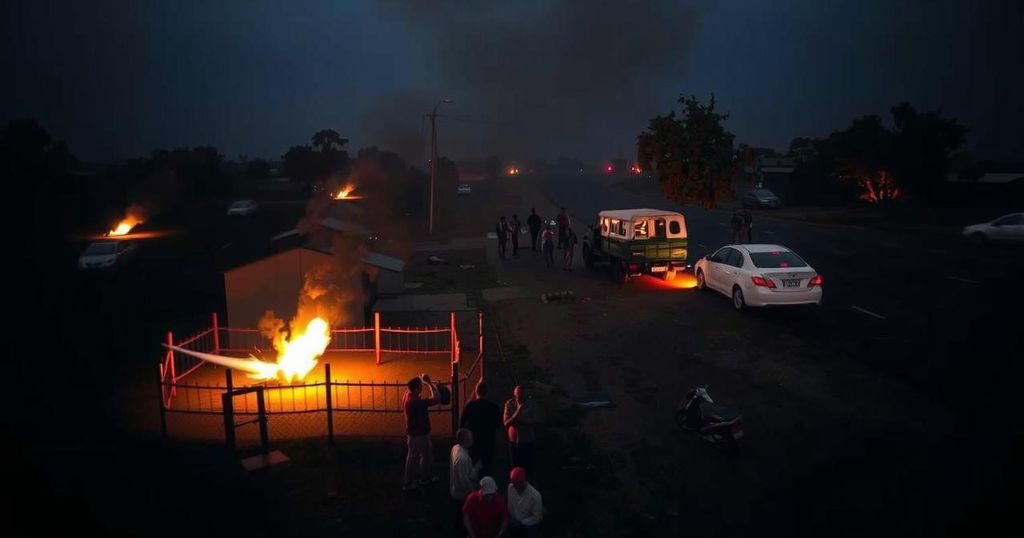Heavy Gunfire Erupts in Juba Amid Rising Tensions in South Sudan

Heavy gunfire broke out near military headquarters in Juba, South Sudan, on November 21, 2024, amid ongoing tensions between factions loyal to President Kiir and First Vice President Machar. The situation remains unclear with efforts underway to understand the cause of the clashes, which reflect the fragile peace following years of civil conflict and ongoing disputes over power-sharing.
On the evening of November 21, 2024, heavy gunfire erupted near a military headquarters in Juba, the capital of South Sudan, as reported by Reuters. The gunfire commenced at approximately 7 p.m. local time and persisted for over an hour, intermittently reducing in intensity. Although the precise identity of those involved in the shooting remains unclear, a military spokesperson indicated efforts are underway to ascertain the situation. This escalation of violence occurs against a backdrop of historical tension between factions loyal to President Salva Kiir and First Vice President Riek Machar, who previously engaged in a civil war from 2013 to 2018, leading to a consequential humanitarian crisis.
Since uniting under a transitional government following the civil conflict, South Sudan has experienced relative calm; however, periodic clashes have erupted due to ongoing disputes regarding power-sharing arrangements. Notably, tensions in Juba have escalated since President Kiir’s dismissal of the long-serving intelligence chief, Akol Koor Kuc, earlier in October, in favor of a close associate. This decision occurred shortly before the transitional government announced a second postponement of the national elections initially slated for December. The current developments underscore the fragility of peace in the region, prompting concern among diplomats and analysts.
The civil strife in South Sudan, which erupted in late 2013, is rooted in political rivalries, particularly between President Salva Kiir and First Vice President Riek Machar. The conflict has historically been marked by violence, leading to a tragic loss of life and displacement of numerous civilians. The signing of peace agreements in 2018 established a transitional government, which was intended to stabilize the nation and pave the way for democratic elections. However, underlying tensions continue to threaten this fragile peace, as demonstrated by recent violent incidents and political maneuvering favoring certain factions over others.
In summary, the recent outbreak of gunfire in Juba highlights the continued volatility in South Sudan, despite a relative period of peace since the conclusion of the civil war. The tensions stemming from political reassignments, such as the dismissal of the intelligence chief, alongside the postponement of national elections, indicate that the power struggle is far from resolved. It is imperative that measures are taken to address the underlying conflicts to avoid further escalation and ensure stability in the region.
Original Source: indianexpress.com








